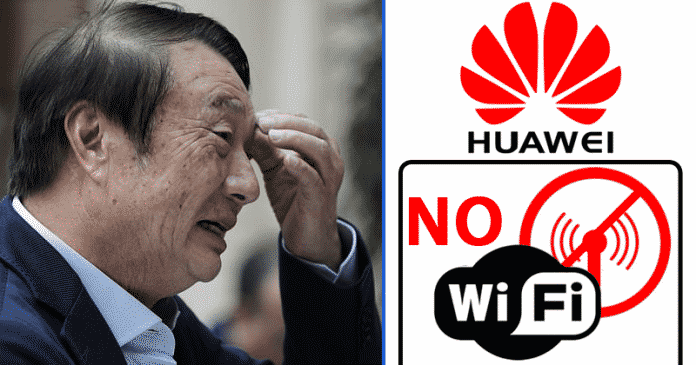By Tushar Subhra Dutta
 We all know very well that recently, we reported that the well-known Chinese smartphone manufacturer, of course, Huawei was suspended from the SD Association, hence, as a result, Huawei will not be able to implement microSD card slot in their future smartphones, tablets and any other devices. But, after the suspension of the SD Association now the company, of course, the world’s second largest smartphone manufacturer Huawei is now suspended from the Wi-Fi Alliance and the JEDEC as well, who is responsible for certifying devices with WiFi and components with RAM, respectively.
We all know very well that recently, we reported that the well-known Chinese smartphone manufacturer, of course, Huawei was suspended from the SD Association, hence, as a result, Huawei will not be able to implement microSD card slot in their future smartphones, tablets and any other devices. But, after the suspension of the SD Association now the company, of course, the world’s second largest smartphone manufacturer Huawei is now suspended from the Wi-Fi Alliance and the JEDEC as well, who is responsible for certifying devices with WiFi and components with RAM, respectively.
Huawei Banned From The Wi-Fi Alliance: No More Wi-Fi
Recently, we reported that the well-known Chinese smartphone manufacturer, of course, Huawei was suspended from the SD Association, hence, as a result, Huawei will not be able to implement microSD card slot in their future smartphones, tablets and any other devices.
But, after the suspension of the SD Association now the company, of course, the world’s second largest smartphone manufacturer Huawei is now suspended from the Wi-Fi Alliance and the JEDEC as well, who is responsible for certifying devices with WiFi and components with RAM, respectively.
If already the dismissal of ARM was going to assume that the Chinese brand Huawei will not be able to launch more smartphones to the market, since they are currently essential to use their technology, now Huawei has been suspended to have absolute power in the association as well.
With the SD Association, a company has to pay about 2000 dollars a year to be able to use its technologies, access specifications, and basically have compatible slots with microSD cards in mobile phones. If they are left out as a member of the association, they can not access it.
As the SD Association is based in California, the United States, and the Wi-Fi Alliance is based in Austin, Texas, which is also located in the United States. Hence, this association gives two options to the companies to be a member, as an “implementer, or contributor”.
In the case of being an implementer, a company can implement unmodified WiFi chipsthat have already been previously certified by the association. In addition, they can use certified product logos and access final documents of each specification. In the case of contributors, a company can only access the development and testing of each standard, as well as marketing tactics and benefit member companies of their membership status.
While in the case of the Chinese giant Huawei, they were not only implementers and contributors, but they went a step further and were also sponsoring the association in an exclusive group of 14 companies including the tech giants like Apple, Intel, Microsoft, Qualcomm, LG, Nokia, and Samsung. Hence, this membership status has been “temporarily restricted” as announced by the Wi-Fi Alliance, while fixing the entire dispute.
Moreover, the Wi-Fi Alliance and JEDEC, responsible for standardizing components such as RAM, is headquartered in Arlington, Virginia, which is another association of the United States that was clearly going to join the barrier. However, interestingly it has not been the association that has expelled the Chinese giant Huawei but it is the Chinese giant Huawei itself has decided to leave.
However, the fact is that the conflict could be resolved without the Chinese brand Huawei being forced to face all the problems it has with companies like ARM and Google, as well as those that would have to be unable to implement WiFi in their future smartphones.
As the president of the United States, Donald Trump has stated that he could lift the prohibition on Huawei within a larger trade agreement with China, so this whole situation could still be an uncertain fear. So, what do you think about this? Simply share all your views and thoughts in the comment section below. And if you liked this post then simply do not forget to share this post with your friends and family.
No comments:
Post a Comment